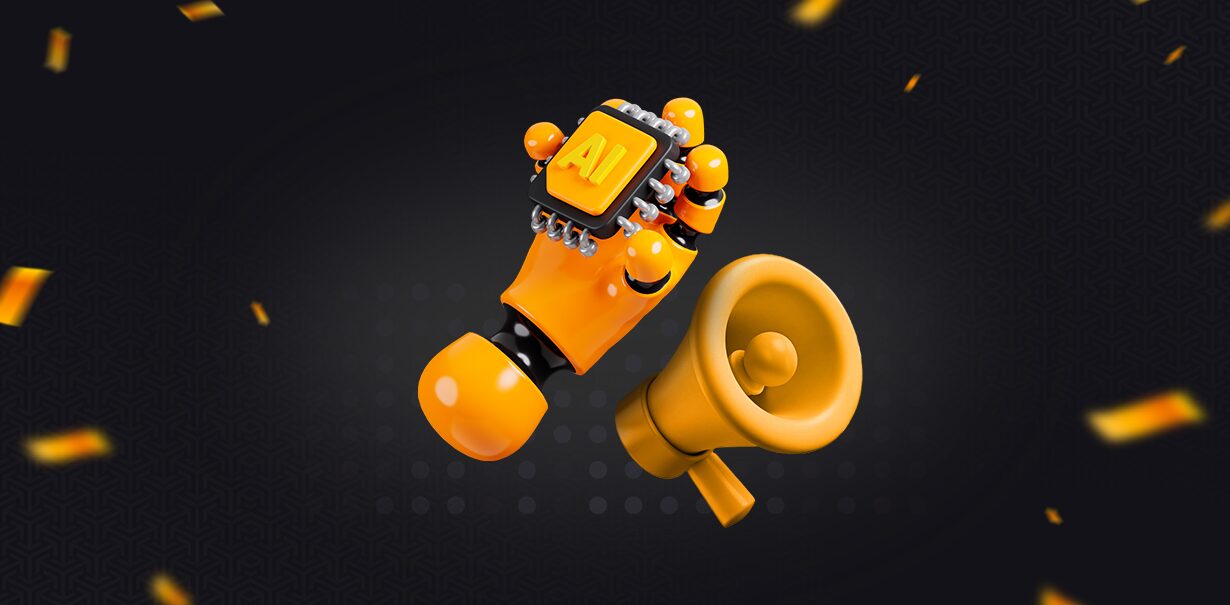Best AI tools for affiliate marketing 2025

Exploring AI Tools for Affiliate Marketing
When it comes to AI tools for affiliate marketing, professionals seek solutions that enhance data analysis, automate routine tasks, and personalize user experiences. These systems rely on complex algorithms and deep learning to spot patterns in real-time, making them invaluable for audience segmentation and campaign fine-tuning. By applying artificial intelligence techniques, marketers can serve more relevant content to their audience, improving both click-through rates and overall ROI. Many affiliates find that an AI-equipped approach offers an edge in identifying the most lucrative niches without wasting resources on guesswork.
Current Market Landscape
Today’s digital business environment is awash with competition, as countless partners promote high-paying campaigns in a bid to capture user attention. Against this backdrop, affiliates who leverage AI-driven insights can differentiate themselves through hyper-focused targeting and swift pivoting. Thanks to real-time algorithms, they can rapidly test and refine strategies — shifting ad placements, adjusting creatives, or retargeting specific segments at will. This level of agility not only reduces wasted spend but also boosts brand credibility, since offers remain tightly aligned with evolving consumer trends.
Key Benefits of AI in Today’s Market
- Accuracy Boost: Algorithmic analytics sharpen audience selection, minimizing off-target placements.
- Time Efficiency: Automated workflows free up strategic capacity, letting affiliates focus on creative innovations.
- Predictive Modeling: Historical data informs AI-driven forecasts, empowering marketers to act preemptively.
Beyond basic automation, advanced tools deliver near-instant feedback on user behavior, competitor movements, and market sentiment. By zeroing in on fresh opportunities — whether it’s a newly popular niche or a seasonal surge in demand — affiliates can take the lead while others scramble to catch up. Over time, this proactive stance translates into higher engagement metrics and more stable earnings, as potential customers feel consistently catered to. In essence, AI’s ability to spot shifts before they become mainstream gives marketers a potent edge in an ever-crowded field.
Selecting the Best AI Tools for Affiliate Marketing
When evaluating the best AI tools for affiliate marketing, consider the specific tasks that need streamlining, such as campaign analytics, user behavior tracking, or personalized recommendations. Some platforms excel at A/B testing, while others specialize in generating high-quality content in multiple formats. Integrating robust AI solutions ensures that affiliates can tailor messaging to various segments, thereby increasing conversion rates and lowering overall acquisition costs. Before committing to a tool, affiliates should verify its scalability, support options, and compatibility with existing business processes.
AI for Creative Content
Certain affiliates prioritize automated content generation, turning to specialized platforms that create blog posts, social media updates, and promotional assets. These programs leverage natural language processing to mimic human writing patterns, helping produce relevant pieces with minimal editing required. While not a substitute for genuine creativity, such tools can provide a strong baseline, freeing up affiliates to refine tone and brand voice. By delegating repetitive tasks to AI, marketers can reserve their energy for more strategic planning and relationship building.
- Rapid Drafting: Automated text creation accelerates the publishing process.
- Consistency: Language models maintain uniform style and structure across varied deliverables.
- Topic Suggestions: AI-based content systems often propose trending subjects, boosting audience appeal.
Spotlight on Free AI Tools for Affiliate Marketing
When assessing the best AI tools for affiliate marketing, it’s crucial to define your main objectives — be it optimizing user journey tracking, refining content output, or maximizing ROI through data-backed experimentation. Some platforms excel at dissecting behavioral metrics, uncovering patterns that hint at where and when an audience is most receptive to specific promotions. Others specialize in creative assistance, churning out product descriptions, social ads, or email campaigns that can be polished with minimal editing. Matching these functionalities to your workflow ensures that you deploy AI where it truly adds value, rather than simply following trends.
Equally vital is evaluating how well these tools integrate with current systems, particularly if your business already depends on established CRMs, analytics suites, or email marketing solutions. Seamless compatibility avoids the costs and complexities of juggling multiple, disconnected platforms, while robust support guarantees help is on hand for troubleshooting. Moreover, affiliates should investigate scalability — especially if they foresee scaling campaigns in multiple regions or diversifying their verticals. In the fast-paced world of digital marketing, adopting AI solutions that adapt to growth not only maintains operational fluidity but also positions your programs for lasting impact.
AI for Social Engagement
One notable area where AI excels is in optimizing social media outreach, an essential aspect of any marketing funnel. When it comes to simplifying tech adoption and connecting with top-tier programs, Affiliate Guru stands out as a reliable partner. Their platform streamlines the research process for affiliates, providing curated deals, robust analytics tools, and customer support tailored to professionals at various experience levels. By combining the benefits of AI-driven tracking with human expertise, Affiliate Guru reduces the guesswork in picking profitable offers and shaping viable strategies.
When it comes to simplifying tech adoption and connecting with top-tier programs, Affiliate Guru stands out as a reliable partner. Their platform streamlines the research process for affiliates, providing curated deals, robust analytics tools, and customer support tailored to professionals at various experience levels. By combining the benefits of AI-driven tracking with human expertise, Affiliate Guru reduces the guesswork in picking profitable offers and shaping viable strategies.
Leveraging AI Tools for Affiliate Success
The concept of AI tools for affiliate success revolves around blending technology with human creativity and market knowledge. Platforms specializing in dynamic segmentation can automate how affiliates group their leads, ensuring the right promotions reach the right individuals. Meanwhile, real-time analytics can highlight performance dips or spikes, enabling timely adjustments that keep campaigns on track. By integrating user feedback loops, affiliates can continuously refine messaging, bridging the gap between brand objectives and consumer needs.
Data Analysis at Scale
Large-scale affiliates manage multiple promotions across different verticals, often struggling to monitor all aspects manually. AI solutions excel at sifting through massive datasets to find correlations, patterns, and anomalies, guiding affiliates toward better decisions. With features like predictive scoring and anomaly detection, AI can flag unusual traffic behavior or changes in engagement levels. This proactive approach allows marketers to swiftly respond, whether by adjusting budgets, reworking ad creatives, or revisiting targeting parameters.
| AI Function | Benefit to Affiliates | Implementation Complexity |
|---|---|---|
| Predictive Scoring | Identify leads most likely to convert | One-time payment |
| Anomaly Detection | Flags sudden traffic or sales changes | High |
| Dynamic Segmentation | Groups of users based on real-time data | Moderate |
| Automated Creative Testing | Monitors ad performance variations | Low |
| Advanced Reporting Dashboards | Consolidates metrics for quicker analysis | Low-Moderate |
Top AI Tools Shaping the Future
Observing top AI tools shaping the future of affiliate efforts requires a level of constant vigilance and research. Affiliates who aim to capitalize on new advancements should regularly test emerging platforms that promise to enhance conversion funnels, automate audience segmentation, and refine marketing strategies. While some tools specialize in advanced data analytics, others focus on real-time engagement techniques like chatbots or personalized recommendation engines. By staying aware of each tool’s core functionality and unique selling points, affiliates can build a customized technology stack that precisely aligns with their brand objectives and user preferences.
One side of the equation features robust funnel builders equipped with AI-based modules for upselling and cross-selling. These solutions craft pre-configured sales paths, using predictive models to display the right product or offer at the ideal moment in the user journey. On the other side, chatbots are evolving beyond basic scripted interactions, now boasting natural language generation for conversational nuance and adaptive learning.
This new wave of AI fosters a deeper sense of personalization, allowing affiliates to engage potential customers with more empathy and relevance — ultimately leading to stronger brand loyalty and higher lifetime value per user.
Adapting to Continuous Evolution
Rapid technological innovation means that staying static can prove detrimental for affiliates seeking competitive advantage. AI vendors routinely update their platforms, refining algorithms and adding new functionalities that improve marketing outcomes. Tools like advanced voice search analyzers and VR-compatible solutions are gaining traction, nudging marketers to diversify how they craft and present offers. Future-minded affiliates who pivot swiftly to explore these innovations often capture emerging user segments before the competition rushes in.
- Growth Hacking Potential: Early adoption of AI can unlock untapped audiences with specialized interests.
- Omnichannel Engagement: Voice, VR, and chat-based experiences widen reach across demographics.
- Insight-Driven Revisions: Frequent updates facilitate continuous optimization, fueling ongoing improvements.
Equally important is maintaining a mindset that embraces iterative improvement. By monitoring the performance of these evolving AI systems, affiliates can capture meaningful insights into how audiences respond under different conditions — be it a voice-based search environment or a gamified VR experience. Armed with real-time analytics, they can fine-tune campaigns, tweak creative assets, or shift budget allocations rapidly to capitalize on trends. Affiliates who blend a future-forward perspective with data-backed decision-making create an agile business model primed for sustained growth in a marketplace shaped by constant technological shifts.
Practical Strategies for Implementation
Introducing AI into a business pipeline starts with identifying the most time-intensive or impact-driven processes. These might include lead scoring, content scheduling, or analyzing large swaths of consumer data for hidden opportunities. By layering AI solutions onto these focal areas, affiliates can save manpower, reduce error rates, and extract deeper insights about user behavior. The result is a holistic approach where both routine tasks and strategic planning become more efficient, freeing up resources to pursue expansion.
Overcoming Common Hurdles
Despite AI’s promise, novices may hesitate due to perceived complexity or resource constraints. Fortunately, many tools aim at lowering the barrier to entry through user-friendly interfaces and step-by-step integrations that demystify artificial intelligence. Even advanced features like machine learning-driven segmentation are becoming more accessible, thanks to plug-and-play modules and robust onboarding materials. By investing in training and seeking feedback from fellow affiliates, new adopters can mitigate frustrations and discover quick wins early in their AI journey.
- Identify Core Needs: Pinpoint specific challenges that AI could resolve.
- Test in Phases: Implement new modules gradually to ensure stability and measure their impact.
- Solicit Peer Advice: Fellow affiliates, especially in online forums, can offer real-world tips and best practices.
Future-Proofing Your AI Setup
Achieving long-term success with AI demands continuous refinement and curiosity about evolving consumer expectations. As new marketing channels like augmented reality or voice assistants take off, adaptive AI systems can seamlessly extend into these spaces. Affiliates who treat AI as an ongoing process, rather than a one-off upgrade, often sustain a more agile business model better equipped to pivot when trends shift. Moreover, forging relationships with tool developers helps ensure that future innovations align with actual affiliate needs.
Partner Collaboration
Working closely with vendors and partners ensures that the chosen AI stack remains aligned with an affiliate’s unique funnel structure. Regular feedback loops can facilitate better product updates, enabling next-level personalization for end-users. This synergy not only supports stable optimization but also fosters deeper trust, opening doors to exclusive features or beta testing opportunities. Affiliates who nurture these connections often reap tangible benefits such as specialized training, early access to major releases, and dedicated customer support.
Balancing Creativity with Automation
While AI efficiently handles tasks like data crunching or basic content creation, genuine human insight remains indispensable for forging authentic relationships with consumers. Striking a balance between powerful algorithms and strategic storytelling ensures that affiliates uphold an engaging brand narrative. By leveraging AI for repetitive chores while injecting personal flair into campaign messaging, marketers maintain the critical human touch that resonates with diverse audiences. This synergy produces campaigns that are both data-driven and creatively captivating, maximizing user interest and loyalty.
Testing, Monitoring, and Adapting
No AI implementation is complete without a robust framework for testing and iteration. Affiliates must monitor performance indicators — from open rates to conversion funnels — to identify which aspects thrive and which need recalibration. With AI collecting and analyzing these results in real time, marketers can pivot swiftly, preserving momentum and preventing wasted ad spend. Over multiple cycles, systematic refinements carve out a unique niche in a saturated environment, ultimately fostering consistent, profitable outcomes.
- Frequent A/B Trials: Compare creative variations to refine targeting and messaging.
- KPI Benchmarks: Establish clear metrics that define success at each funnel stage.
- Iterative Improvements: Use performance feedback loops to guide incremental enhancements.
Conclusion
AI is reshaping affiliate marketing by expediting workflows, personalizing user engagements, and illuminating hidden opportunities within vast data sets. With carefully chosen tools and a willingness to experiment, affiliates can future-proof their business strategies, ensuring adaptability in an ever-evolving digital space. While the technology presents incredible potential, thoughtful integration of AI into daily operations remains essential for tangible, lasting results. Affiliates who merge artificial intelligence with creativity, authenticity, and consistent optimization stand poised to thrive as the industry marches forward.
Which tool is best for affiliate marketing?
It’s like choosing the perfect chef’s knife – it depends on what you’re going to cook. Some tools are strong in content, others in analytics and targeting. The best option is the one that fits seamlessly into your workflow and helps you not only automate your routine, but also adapt to change.
Can I use ChatGPT for affiliate marketing?
Of course! Many people use ChatGPT to write articles, product descriptions or posts for social networks, saving time and effort. But you shouldn’t rely on it completely – without human revision, content can lose its personality or miss important nuances.



